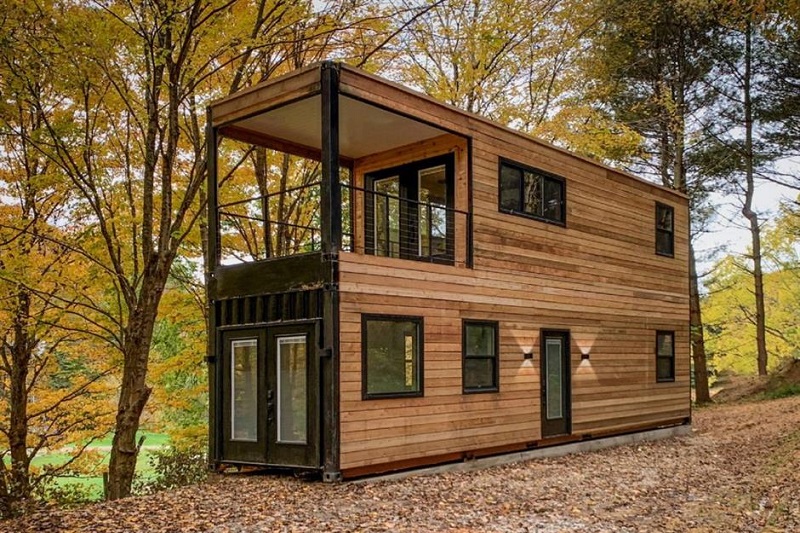
You're excited to transform your brand-new shipping container into a comfortable home or productive workplace. Take care to make it a pleasant and secure place to stay now that you have it.
One of those things is ventilation. You should take the time to properly install ventilation in your shipping container so that everyone inside can be healthy and happy. This article will explain the basics of shipping container ventilation and give a
few tips for Shipping Container Ventilation.
1. Understanding the Importance of Shipping Container Ventilation
While the containers are airtight, they're not watertight. And as you probably know, moisture is the enemy of cargo. Excess moisture can cause rust, mold, and mildew that damage cargo.
So, it is crucial to have a proper ventilation system that will remove excess moisture from the air. A good ventilation system will keep your cargo and containers safe in good condition for years.
2. Evaluating Your Environment and Container Use
When shipping containers first hit the market, they were used solely for transporting goods. But as time passed, people began to see the potential in using them as living spaces. Before you transform shipping containers into homes, studios, and offices, make sure that you evaluate your environment and container use. Consider the climate in your area and how much sunlight your container will receive. Think about ventilation needs, both for yourself and your container.
A few different types of ventilation systems can be used in a shipping container. The most common is a roof-mounted exhaust fan, which draws air out of the container and pushes it out through the roof.
3. Choosing the Right Ventilation System
With so many different ventilation systems on the market, it can be hard to know which one is right for you. Here are a few tips to help you choose the right ventilation system for your shipping container:
- Think about the climate where your container will be operating. A shipping container ventilation system with air conditioning is a must in a hot climate. If you're living in a cold climate, your ventilation system should have a heating option.
- Choose a shipping container ventilation system that's durable and easy to maintain. The last thing you want is a ventilation system that breaks down in the middle of a shipment.
- Approval of the authorities for use in shipping containers.
By following these tips, you can be sure to choose a ventilation system that's safe and effective for your needs.
4. Maintaining Proper Air Quality in Shipping Containers
Shipping container ventilation should have proper ventilation to get better air quality. It is influenced by keeping items safe and secure during transport.
Maintaining proper air quality means monitoring temperature and humidity levels inside the container and keeping out dust, dirt, and other particles. Making sure the cargo is safely handled and that there are no breaches in the seals or openings surrounding the doors can help you achieve this.
It's important to think about the ventilation system after you've sealed up any holes. The system could be active, using fans, or passive, using convection currents in the air. Both systems can effectively circulate air without compromising your cargo's safety.

5. Safety and Health Considerations for Shipping Container Ventilation
A few key safety and health regulations should be considered. First and foremost, choose a well-ventilated location for your container. It means choosing an area with good airflow and avoiding dark, enclosed spaces as much as possible.
Another essential factor is to select the type of materials stored in the container. The accumulation of toxic gases or vapors can be disastrous in a storage area for hazardous chemicals or other potentially dangerous goods, so make sure you have good ventilation.
Lastly, you must follow any applicable regulatory guidelines for shipping containers. Otherwise, any local authority can hinder your project and cause other issues.
Conclusion
So, if you are using a shipping container as a home, office, or storage unit, it's important to remember to ventilate it properly. Follow these guidelines and your shipping container will last for years of service, no matter how you put it to use. Avoid doing any leniency while setting up the shipping container ventilation system.




0 Comments